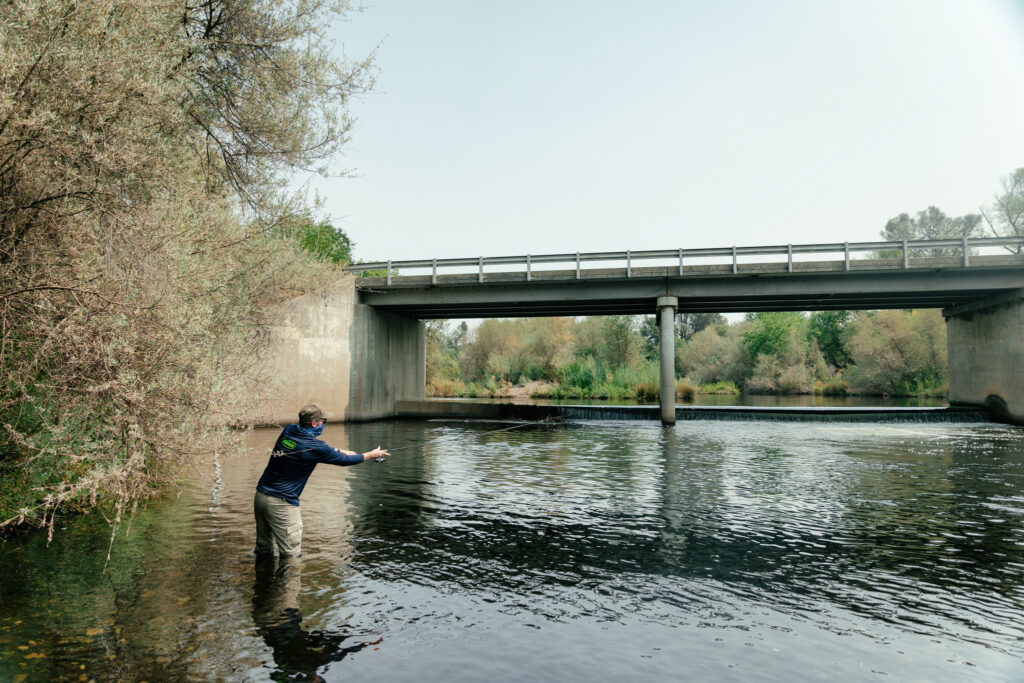Monday August 15, 2022

During the first six months of the COVID-19 pandemic in 2020, people were in search of safe ways to fill unexpected free time, especially in the midst of lockdowns. With most regular activities shut down and many out of work and school, people of all ages had to pivot to new and creative ways to stay occupied. Fortunately, outdoor activities, such as recreational fishing, were typically deemed safe early on in the pandemic, which opened up opportunities for people to explore new outdoor hobbies. A study by a research team led by Louisiana State University examined how the pandemic altered recreational fishing behavior across the United States (Midway et al 2021). Using survey-based methods, the researchers investigated fisher motivations and behavior to better understand how rare phenomena like pandemics can shift how humans interact with natural resources. The study found a slight significant increase in the number of fishing trips self-reported in the spring of 2020 compared to a non-pandemic spring, as well as changes in the motivations for fishing trips. Recreational fishing provided an opportunity for people to participate in an outdoor activity that was widely perceived to be COVID safe, with potential benefits for mental health.
Conducting a study in the midst of the pandemic meant that in-person data collection methods were not feasible, and required researchers to utilize survey-based methods. In the summer of 2020, a 20-question survey was emailed to licensed resident anglers via state fish and wildlife agencies in ten different states around the country, and was answered by nearly 18,000 respondents. The angler survey included questions related to five topics, including how the pandemic had affected respondents, and the change in the number of fishing trips between a typical (non-pandemic) spring and spring 2020. Anglers were also asked about reasons for fishing before and during the pandemic, any changes to fishing access during the pandemic, and whether they considered fishing to be COVID safe.
The most commonly reported effects of the pandemic on survey respondents were “mental stress” and “no effect.” The number of self-reported fishing trips was slightly higher during the spring of 2020 than a non-pandemic spring, and was most pronounced among those who had lost jobs or work hours. The researchers also found that about a third of the respondents reported a change in their primary motivation for fishing before and during COVID, with “stress relief” showing the greatest increase as a motivation during the pandemic, followed by “social/family bonding” and “nature.” The percentage of anglers that reported losing partial access to recreational fishing due to pandemic closures varied among states, ranging from 25% in Iowa and Arkansas to more than 50% in Texas, Florida, and South Carolina. Despite this, anglers generally maintained or increased their level of fishing in the early days of the pandemic, likely due to the perceived COVID safety of this outdoor activity. The vast majority of respondents (83%) rated fishing as “extremely safe” or “somewhat safe,” which is reflected in the term “social fishtancing” that appeared in popular media during this time.
The study was the first of its kind to investigate how the pandemic altered recreational fishing practices. The authors noted the importance of tracking angler motivations over time, as one limitation of the study was the lack of a comparable data set collected prior to the pandemic. The researchers concluded that recreational fishing offered a valuable mental health outlet during a public health crisis. Recreational fishing is a multibillion dollar activity in the United States that produces primary funding for most fisheries conservation efforts across the country, and any change in the active recreational fishing community directly affects how fisheries resources are managed. Therefore, understanding why and how often people choose to participate in recreational fishing activities, including during unexpected events like a global pandemic, is valuable information for state and federal fisheries managers alike.
Andrea Dempsey contributed to this story as part of an internship with FISHBIO.
